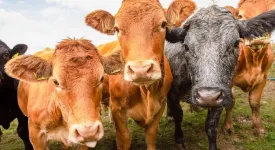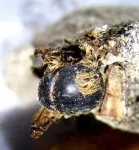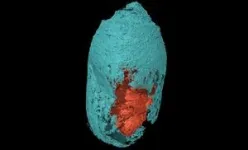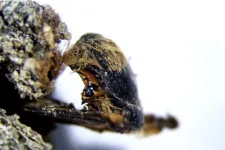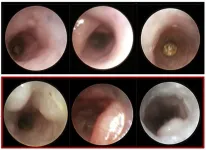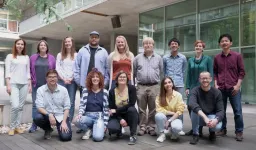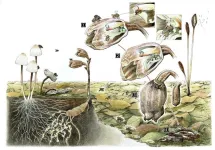(Press-News.org) More than 1 billion cows around the world will experience heat stress by the end of the century if carbon emissions are high and environmental protection is low, according to new research published today in IOP Publishing’s journal Environmental Research Letters.
This would mean cattle farming would face potentially lethal heat stress in much of the world, including Central America, tropical South America, Equatorial Africa, and South and Southeast Asia. The research also found that rapidly reducing greenhouse gas emissions, as well as keeping cattle production close to current levels, would reduce these impacts by at least 50% in Asia, 63% in South America, and 84% in Africa.
Extreme heat harms cattle in many different ways, especially when combined with high humidity. It reduces fertility, impairs the growth of calves, and can result in increased deaths. In dairy cows, it also reduces milk production. All of these impact the viability of livestock farming, reducing animal welfare and farm income.
To study current and future impacts of heat stress on cattle, researchers from the Universities of Cape Town, KwaZulu-Natal and Chicago analysed today’s heat and humidity conditions around the world, and estimated how they will impact cattle in future decades, depending on different levels of emissions and forms of land use.
The researchers project that if future carbon emissions are very high, nine in ten cows around the world will experience 30 or more days of heat stress per year, and more than three in ten will experience it all year-round by the end of the century. While the most affected countries will be in tropical regions, many other parts of the world will also face multiple months of heat stress conditions every year, including parts of Europe and North America. Some areas of Japan, Australia and Mexico, among others, will experience 180 heat stress days or more per year (see table below).
Rising temperatures and humidity will force farmers to adapt to these new conditions, for example, by providing ventilation or even air conditioning for the animals or switching to heat-adapted cattle breeds. But these measures will become increasingly expensive with future warming and will not be possible in all places - meaning cattle farming could no longer be viable in places where it is currently a major occupation, for example in India, Brazil, Paraguay, Uruguay and north-eastern Argentina, and across the Sahelian and east African countries.
Cutting carbon emissions rapidly and maintaining livestock production within current levels would greatly reduce the number of cattle exposed to heat stress, particularly in some of the most affected regions, including Asia, South America and Africa. Reducing emissions will also protect cattle in temperate regions from experiencing heat stress for more than half the year.
The researchers stress that today’s decisions will be critical for the coming decades. For example, cutting down tropical forests to farm livestock in places like the Amazon and central Africa will not only increase the number of cattle in areas that are already experiencing the most heat stress, but will also worsen climate change, making cattle ranching extremely difficult in these regions and elsewhere.
Reducing the amount of beef in diets, and eating more plant-based products, would reduce consumer demand for cattle products. This would put fewer animals at risk from heat stress, while also providing opportunities for forest protection and the restoration of degraded lands that could help limit temperature rise.
Dr Michelle North, veterinarian and researcher at the University of KwaZulu-Natal, said:
“Our study clearly shows that cattle are increasingly exposed to temperatures that impact their welfare, reducing growth and production and potentially leading to increasing deaths, in many parts of the world that are currently seen as prime cattle-farming territory. It is also important to remember that we are only looking at heat stress here, and do not consider changes to water availability.
“What this means, is that cattle farming will become less and less viable in many parts of the world.
“There are simple solutions that can both reduce the amount of heat stress cattle are subjected to, as well as reducing greenhouse gas emissions, and therefore reducing climate change overall. Existing farmers can start to prioritize strategies for reducing the amount of heat stress their cattle experience, choosing from a wide range of solutions that vary in how long they take to implement, how much they cost, and their effectiveness (in other words, how much heat they can help cattle cope with). They might also consider whether a different breed of cattle, or different livestock species might be better adapted to their local conditions.
“At the same time, farmers and governments need to carefully consider whether it makes sense to expand cattle production in regions that are projected to become too hot for cattle. Consumers can help by choosing not to support increasing investment in cattle farming, through their purchasing decisions (for example through choosing sustainable diets, reducing meat consumption and supporting local producers), and through their voting decisions.”
Dr Christopher Trisos, ecologist and climate change researcher at University of Cape Town, said:
“We’ve seen the deadly impacts for humans of climate change intensifying heatwaves, but the animals that feed us are also at severe risk from heat. We need to act now to limit the risk.”
“Expanding cattle production by cutting down or burning tropical forests is unsustainable, it worsens climate change and will undermine the welfare of hundreds of millions more cattle that will be exposed to severe, year-round heat stress.
“Adaptation of livestock farming systems to reduce the impacts of heat stress will be essential.”
“Reducing the amount of cattle products in diets can help limit future expansion of cattle farming, creating opportunities to protect and restore forests that can help limit future global warming.”
END
Cattle farming expansion and unchecked climate change would expose more than 1 billion cows to heat stress
Livestock farming will become increasingly difficult in many tropical countries if emissions remain high - but rapidly cutting emissions and limiting cattle expansion would reduce the impacts by 50-84%
2023-08-24
ELSE PRESS RELEASES FROM THIS DATE:
Bees from the time of the pharaohs found mummified on the Southwest Coast of Portugal
2023-08-24
A new study reports the discovery of hundreds of mummified bees inside their cocoons. These cocoons, produced almost three thousand years ago, were discovered in a new paleontological site discovered on the coast of Odemira, in Portugal.
About 2975 years ago, Pharaoh Siamun reigned in Lower Egypt; in China the Zhou Dynasty elapsed; Solomon was to succeed David on the throne of Israel; in the territory that is now Portugal, the tribes were heading towards the end of the Bronze Age. In particular, on the southwest coast of Portugal, where is now Odemira, something strange and rare ...
Study IDs secret of stealthy invader essential to ruinous rice disease
2023-08-24
The virulence of a rice-wrecking fungus — and deployment of ninja-like proteins that help it escape detection by muffling an immune system’s alarm bells — relies on genetic decoding quirks that could prove central to stopping it, says research from the University of Nebraska–Lincoln.
A Nebraska team helmed by Richard Wilson hopes that identifying an essential but formerly unknown stage in the fungal takeover of rice cells can accelerate the treatment or prevention of rice blast disease, which ruins up to 30% of global yields each year.
“The response I’ve gotten from people in my field is that they’re very excited, ...
Mutations in blood stem cells can exacerbate colon cancer
2023-08-24
Researchers at the University of Florida College of Medicine have discovered how common age-related changes in the blood system can make certain colon cancers grow faster. The study, to be published August 24 in the Journal of Experimental Medicine (JEM), also suggests how these effects might be therapeutically targeted to reduce tumor growth and improve patient survival.
As we age, the hematopoietic stem cells that reside in the bone marrow and give rise to all of the body’s different blood cells gradually acquire mutations in their ...
The ‘treadmill conveyor belt’ ensuring proper cell division
2023-08-24
Researchers at the Centre for Genomic Regulation (CRG) have discovered how proteins work in tandem to regulate ‘treadmilling’, a mechanism used by the network of microtubules inside cells to ensure proper cell division. The findings are published today in the Journal of Cell Biology.
Microtubules are long tubes made of proteins that serve as infrastructure to connect different regions inside of a cell. Microtubules are also critical for cell division, where they are key components of the spindle, the structure which attaches itself to chromosomes and pulls them apart into each new cell.
For the spindle to function properly, cells rely on microtubules to ‘treadmill’. ...
Significant progress in cell separation technology made by Griffith University team
2023-08-24
Early detection allows for timely intervention in many diseases before they progress to a severe stage, often at a lower treatment cost. This is particularly crucial in the case of cancer, as the stage of cancer development at the time of initial diagnosis significantly influences the patient's prognosis and survival rate. Therefore, regular medical check-ups can ensure better survival and quality of life. However, the multitude of medical examination items makes the experience both loved and loathed. With various ...
Fungi-eating plants and flies team up for reproduction
2023-08-24
Fungi-eating orchids were found for the first time to offer their flowers to fungi-eating fruit flies in exchange for pollination, which is the first evidence for nursery pollination in orchids. This unique new plant-animal relationship hints at an evolutionary transition towards mutualistic symbiosis.
Orchids are well known to trick their pollinators into visiting the flowers by imitating food sources, breeding grounds or even mates without actually offering anything in return. The fungi-eating, non-photosynthetic orchid genus Gastrodia is no different: To attract fruit flies (Drosophila spp.), the plants usually emits a smell like their common diet of fermented fruits ...
Preterm babies given certain fatty acids have better vision
2023-08-24
Preterm babies given a supplement with a combination of omega-3 and omega-6 fatty acids have better visual function by the age of two and a half. This has been shown by a study at the University of Gothenburg, Sweden.
The study, published in The Lancet Regional Health Europe, covers 178 extremely preterm babies at the neonatal units of the university hospitals in Gothenburg, Lund, and Stockholm between 2016 and 2019. Extremely preterm babies are those born before the 28th week of pregnancy.
Around half of the children were given preventive oral nutritional supplements containing the omega-6 fatty acid AA (arachidonic acid) and the omega-3 fatty acid DHA (docosahexaenoic ...
Manchester research to boost bioprinting technology to address critical health challenges in space
2023-08-24
New research by The University of Manchester will enhance the power of bioprinting technology, opening doors to transform advances in medicine and addressing critical health challenges faced by astronauts during space missions.
Bioprinting involves using specialised 3D printers to print living cells creating new skin, bone, tissue or organs for transplantation.
The technique has the potential to revolutionise medicine, and specifically in the realm of space travel, bioprinting could have a significant impact.
Astronauts on extended space missions have ...
Social media does not cause depression in children and young people
2023-08-24
“The prevalence of anxiety and depression has increased. As has the use of social media. Many people therefore believe that there has to be a correlation,” says Silje Steinsbekk, a professor at the Norwegian University of Science and Technology's (NTNU) Department of Psychology.
But that is not the case if we are to believe the results of the study “Social media behaviours and symptoms of anxiety and depression. A four-wave cohort study from age 10-16 years”.
Trondheim Early Secure Study
In the Trondheim Early Secure Study research project, researchers followed 800 children in Trondheim ...
Researchers reveal electronic nematicity without charge density waves in titanium-based kagome metal
2023-08-24
Chestnut Hill, Mass (8/24/2023) – Electronic nematic order in kagome materials has thus far been entangled with charge density waves. Now it is finally observed as a stand-alone phase in a titanium-based Kagome metal, a team of researchers led by Boston College physicists reported recently in Nature Physics.
Quantum materials composed of atoms arranged on a kagome net of corner-sharing triangles present an exciting platform to realize novel electronic behavior, paper co-author and Boston College Professor of Physics Ilija Zeljkovic explained.
There ...
LAST 30 PRESS RELEASES:
Scientists discover why we know when to stop scratching an itch
A hidden reason inner ear cells die – and what it means for preventing hearing loss
Researchers discover how tuberculosis bacteria use a “stealth” mechanism to evade the immune system
New microscopy technique lets scientists see cells in unprecedented detail and color
Sometimes less is more: Scientists rethink how to pack medicine into tiny delivery capsules
Scientists build low-cost microscope to study living cells in zero gravity
The Biophysical Journal names Denis V. Titov the 2025 Paper of the Year-Early Career Investigator awardee
Scientists show how your body senses cold—and why menthol feels cool
Scientists deliver new molecule for getting DNA into cells
Study reveals insights about brain regions linked to OCD, informing potential treatments
Does ocean saltiness influence El Niño?
2026 Young Investigators: ONR celebrates new talent tackling warfighter challenges
Genetics help explain who gets the ‘telltale tingle’ from music, art and literature
Many Americans misunderstand medical aid in dying laws
Researchers publish landmark infectious disease study in ‘Science’
New NSF award supports innovative role-playing game approach to strengthening research security in academia
Kumar named to ACMA Emerging Leaders Program for 2026
AI language models could transform aquatic environmental risk assessment
New isotope tools reveal hidden pathways reshaping the global nitrogen cycle
Study reveals how antibiotic structure controls removal from water using biochar
Why chronic pain lasts longer in women: Immune cells offer clues
Toxic exposure creates epigenetic disease risk over 20 generations
More time spent on social media linked to steroid use intentions among boys and men
New study suggests a “kick it while it’s down” approach to cancer treatment could improve cure rates
Milken Institute, Ann Theodore Foundation launch new grant to support clinical trial for potential sarcoidosis treatment
New strategies boost effectiveness of CAR-NK therapy against cancer
Study: Adolescent cannabis use linked to doubling risk of psychotic and bipolar disorders
Invisible harms: drug-related deaths spike after hurricanes and tropical storms
Adolescent cannabis use and risk of psychotic, bipolar, depressive, and anxiety disorders
Anxiety, depression, and care barriers in adults with intellectual and developmental disabilities
[Press-News.org] Cattle farming expansion and unchecked climate change would expose more than 1 billion cows to heat stressLivestock farming will become increasingly difficult in many tropical countries if emissions remain high - but rapidly cutting emissions and limiting cattle expansion would reduce the impacts by 50-84%
